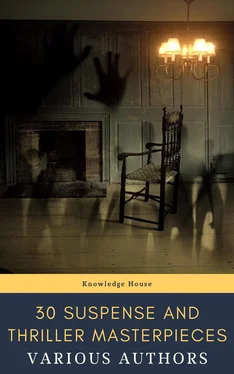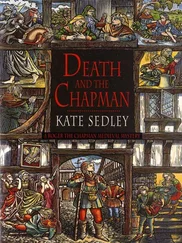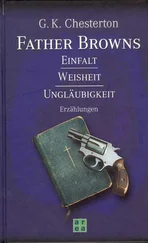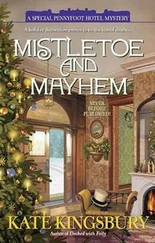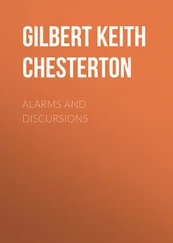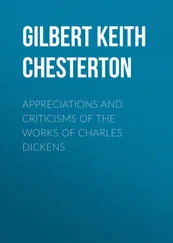"They haven't a word about the affair yet," she cried.
At that moment the powerful voice of M. de Panteloup was heard:
"You are now going to hear an interesting speech by the celebrated archivist and paleographer, M. Anastasius Baringouin, who, better than anyone else, can explain to you the strange enigma of the Singing Fountains."
An immense shout of laughter greeted the orator as he mounted the steps to the stage. He was an old man, very wrinkled and shaky, wearing a high hat much too large for his head. He was vainly trying to settle his glasses upon a very red nose. In a thin, sharp voice, he began:
"The phenomenon of the Singing Fountains is not, as might be supposed, wholly unexpected. Similar occurrences have already been noted and date back to remote antiquity. Formerly a stone statue was erected in the outskirts of the town of Thebes to the memory of Memnon. When the beams of the rising sun struck it, harmonious sounds were heard to issue from it. At first this peculiarity was attributed to some form of trickery, a secret spring or a hidden keyboard. But upon further research, it was demonstrated that the sounds arose from purely physical and natural causes."
The crowd which hitherto had listened in silence to the orator now began to show signs of impatience.
"What the dickens is he gassing about?" shouted some one in the street.
As the savant paid no attention to these signs the band struck up a military march. Finally when order was re-established M. Panteloup himself mounted the platform.
"This fountain, ladies and gentlemen," he began in a powerful voice, "was built in 1836 at a cost of a million and a half francs. In the twenty-four hours its output is 6,716 cubic yards of water. It is composed, as you can see, of a basin of polished stone, decorated by six tritons and nereids, each holding a fish in its mouth from which the water flows out. Thus far there is nothing unusual and it is therefore with justifiable surprise that we discover the fact that at certain moments these fountains actually sing. Are we in the presence of a phenomenon similar to that recalled just now by M. Anastasius Baringouin? Are we, at the beginning of the twentieth century—the century of Science and Precision—victims of hallucination or sorcery? This, ladies and gentlemen, is what we are about to investigate, and we will begin by consulting the celebrated clairvoyant, Madame Gabrielle de Smyrne."
A murmur of approbation greeted the pretty prophetess as she appeared, but at the same moment a police officer followed by fifteen men pushed his way to the foot of the platform and ordered M. Panteloup to cease attracting a crowd. The latter, however, was equal to the occasion. After lifting his hand for silence he shouted the famous cry:
"We are here by the will of the people, we shall not go away except by force."
The crowd cheered, and with the voices mingled the barking of dogs.
"Ladies and gentlemen," continued M. Panteloup, "you hear the wonderful police dogs of Neuilly, Turk and Bellone. They are coming to help us to scent out the mystery."
This was to be the termination of the ceremony, but an unlooked for addition to the program appeared in the person of one of those Parisian "Natural Men" or "Primitive Men."
He was a very old, long-bearded man and wore a white robe. He went by the name of Ouaouaoua, and his portrait had been published in all city papers. A hush came over the crowd and then in the silence a vague metallic murmur was heard above the splash of the water.
This time there was no mistake. The Fountains were singing.
Thousands of witnesses were present and could testify to that fact.
The crowd at once associated the arrival of Ouaouaoua with the music from the Fountains, and he was acclaimed the hero of the occasion.
M. de Panteloup, seized with a happy inspiration, shook hands with Ouaouaoua and pinned on his white robe the gold medal of La Capitale .
Proceedings were, however, summarily brought to a stop at this point. The prefect of the police drove up and his men scattered the crowd in all directions.
Ten minutes after the Place de la Concorde had assumed its usual aspect and the tritons and nereids continued to pour out their 6,716 cubic yards of water every twenty-four hours.
Chapter 6 THE INVESTIGATION BEGINS
M. Vicart, sub-director of the Police Department, was in an execrable humor.
In all his long career such a thing had never happened before. In spite of the established rule, he had been deprived of his New Year holiday, which he usually spent in visits to governmental officials capable of influencing his advancement.
He had been ordered to his office. His morning had been spent in endless discussions with M. Annion, his director. Numerous telegrams, interviews, work of all kinds instead of his customary rest. Besides, he had received from his friends only 318 visiting cards instead of 384, last year's number. It was most annoying. He was engaged in recounting his cards when a clerk announced the visit of detective Juve.
"Send him in at once."
In a few moments Juve entered.
Juve had not changed. In spite of his forty-odd years, he was still young looking, active, persevering and daring.
For some time past he had been left very much to his own devices in his tracking of the elusive Fantômas, and he was rarely called in to assist in the pursuit of other criminals. Therefore he realized that it was an affair of the very first importance which called for his presence in M. Vicart's office.
The detective found M. Vicart seated at his desk in the badly lighted room.
"My dear Juve, you are probably surprised at being sent for to-day."
"A little … yes."
"Well, you probably know that the King of Hesse-Weimar, Frederick-Christian II, has been staying incognito in Paris?"
Juve nodded. He did not think it necessary to mention the incident that had occasioned this visit. [1]
"Now, Christian II has, or rather had, a mistress, Susy d'Orsel, a demi-mondaine. Were you aware of that?"
"No, what of it?"
"This woman has been murdered … or rather … has not been murdered … you understand, Juve, has not been murdered."
"Has not been murdered, very well!"
"Now, this woman who has not been murdered threw herself out of the window last night at three o'clock; in a word, she committed suicide, at the precise moment when Frederick-Christian was taking supper with her … you grasp my meaning?"
"No, I don't. What are you trying to get at?"
"Why, it's as clear as day, Juve … the scandal! especially as the local magistrate had the stupidity to arrest the King."
"The King has been arrested … I don't understand! Then it wasn't suicide?"
"That is what must be established."
"And I am to take charge of the investigation?"
"I put it in your hands."
When M. Vicart had explained the circumstances of the case, Juve summed up:
"In a word, Frederick-Christian II went to see his mistress last night, she threw herself out of the window, the King was arrested for murder; he put in a denial, claiming that a third person was present, this third person escaped, an inadmissible hypothesis, since nobody saw him and the door to the servant's staircase was locked … this morning the King was set at liberty, and we have now to find out whether a crime was really committed or whether it was a case of suicide… . Is that it?"
"That is it! But you're going ahead pretty fast. You don't realize, Juve, the seriousness of the supposition you formulate so freely… . You must know whether it's murder or suicide! Of course! Of course!… but you are too precise… . A King a murderer … that isn't possible. There would be terrible diplomatic complications… . It's a case of suicide… . Susy d'Orsel committed suicide beyond a doubt."
Читать дальше
